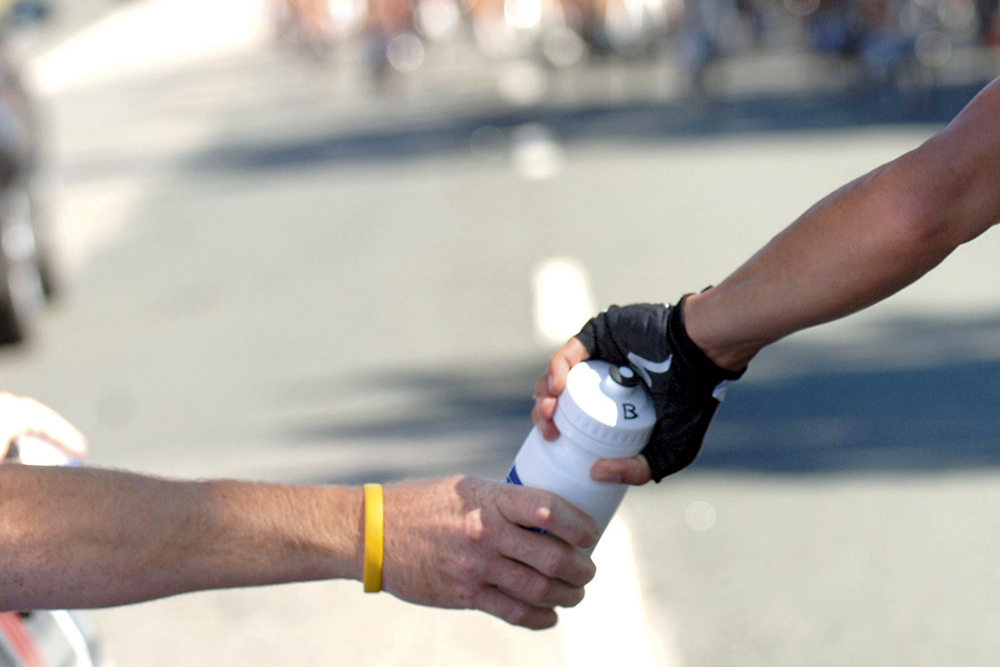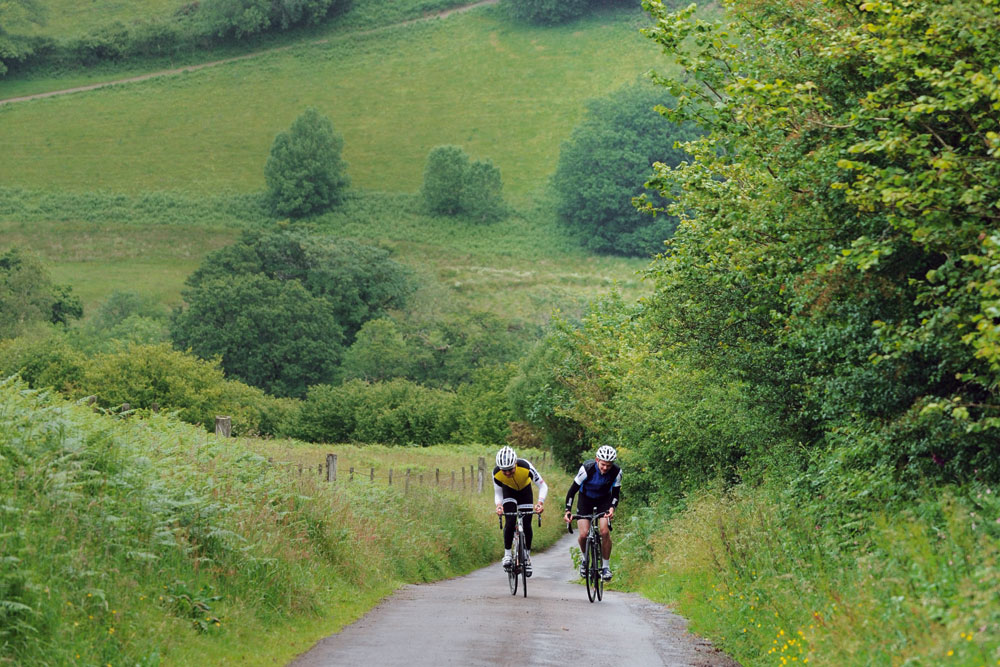'Dehydration could make you climb faster' says top team medical consultant
Carefully managed dehydration may improve a rider's climbing performance says Dr Roger Palfreeman, who has worked with BMC and Team Sky

Image: Watson

Thirst and dehydration could make professional riders climb faster, says a doctor who has worked with Team Sky, British Cycling and BMC Racing.
Dr Roger Palfreeman spoke last week at a conference in Doha, Qatar, about the effects of heat in cycling. Spanish newspaper El País printed his comments on losing weight and controlled dehydration to improve performance.
During his presentation, Palfreeman used Team Sky's Tour de France champion Chris Froome as an example of an athlete who may theoretically improve using the controversial method.
"Losing two kilos during the day of a mountain stage, Froome needs 47 seconds less to climb the Alpe d'Huez, which is no small thing considering that in 2015, for example, he won the Tour by just 72 seconds," Palfreeman said.
"And he can lose two kilos through controlled dehydration, drinking less than certain logic would require."
Froome won the 2015 Tour de France thanks in part to his final defence against Colombian Nairo Quintana (Movistar). Quintana launched an attack on the Alpe d'Huez climb and put Froome on the ropes, but could only gain enough time to move within 1-12 of Froome's eventual win.

The three-time winner's Tour weight is reported around 66 to 67 kilograms. Palfreeman, wrote El País, showed how the all important watts per kilogram changes from 6.25 to 6.45 weighing 65 instead of 67 kilograms. It is based on the need to shed two kilograms through three per cent dehydration.
Get The Leadout Newsletter
The latest race content, interviews, features, reviews and expert buying guides, direct to your inbox!
Palfreeman said athletes can learn to tolerate the feeling that comes with drinking less than what their bodies ask without having it affect their performance. He explained, "Optimum hydration is not balanced hydration".
The process is called "training of thermal perception". To eliminate the worry that they could 'bonk' or become dehydrated, Palfreeman explained that you had to misinform cyclists about their hydration status.
>>> How a bike made from parts bought on eBay won the National Hill-Climb Championships
The article explained that he recommended mouthwash with menthol to deceive their thirst. According to Palfreeman, it also includes paracetamol, a medication used to treat fever, and antidepressant Wellbutrin (bupropion), which helps at 30°C. The article did not say he was giving the medications to Froome.
The World Anti-Doping Agency (WADA) has not included the medications on its banned list, but has included bupropion in its monitoring programme.
Palfreeman said that cyclist should train to adapt to the heat, as if they are going to compete at 40°C, through dehydration and 40-minute baths in 40°C water.
Team Sky told Cycling Weekly in a statement:"Rider welfare is paramount and so issues such as hydration are carefully managed by our Head of Nutrition and our team doctors."
"Doctor Palfreeman was speaking at a conference in a personal capacity and was not referring to any practices we use at Team Sky."
The article quoted another doctor who said: "I would never reveal the secrets that make a cyclist go faster". He added that nothing that Palfreeman revealed is based on scientific studies.
Doctors have studied the affects of dehydration and certain drugs like paracetamol. A study published in Experimental Physiology in 2013 showed some improved performances, but it may inhibit performance through other mechanisms.

Thank you for reading 20 articles this month* Join now for unlimited access
Enjoy your first month for just £1 / $1 / €1
*Read 5 free articles per month without a subscription

Join now for unlimited access
Try first month for just £1 / $1 / €1
Gregor Brown is an experienced cycling journalist, based in Florence, Italy. He has covered races all over the world for over a decade - following the Giro, Tour de France, and every major race since 2006. His love of cycling began with freestyle and BMX, before the 1998 Tour de France led him to a deep appreciation of the road racing season.
-
 FDJ-Suez, SD Worx-Protime, Lidl-Trek confirmed for Tour of Britain Women as strong list of teams announced
FDJ-Suez, SD Worx-Protime, Lidl-Trek confirmed for Tour of Britain Women as strong list of teams announced18 teams set to take part in four-day WorldTour stage race
By Tom Thewlis
-
 Cyclists could face life sentences for killing pedestrians if new law passed in England and Wales
Cyclists could face life sentences for killing pedestrians if new law passed in England and WalesReckless cycling currently carries a maximum two-year jail term
By Tom Thewlis